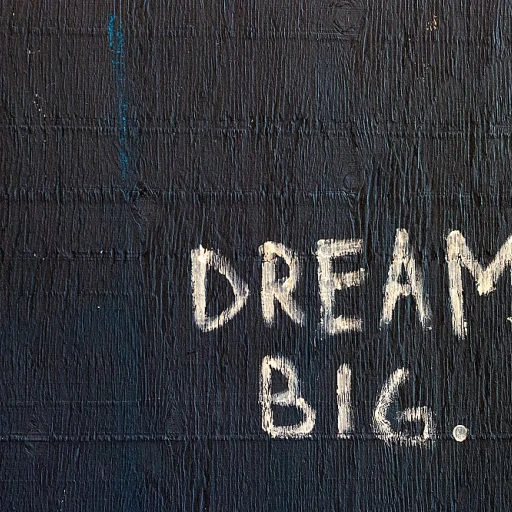
Understanding misdemeanors and employment barriers
What Counts as a Misdemeanor and Why It Matters for Job Seekers
When it comes to employment, a misdemeanor is more than just a minor legal issue. It’s a criminal offense that sits between an infraction and a felony. While misdemeanors are generally considered less severe than felonies, they still create barriers for individuals trying to secure a job. Many employers, housing providers, and licensing boards routinely review criminal records during the hiring process, and even a single misdemeanor conviction can raise concerns about an applicant’s suitability.
Misdemeanors can include offenses like petty theft, simple assault, disorderly conduct, or driving under the influence. The impact of a misdemeanor record on employment opportunities varies based on the nature of the conviction, the job being sought, and the employer’s policies. Some private employers may be more flexible, while others—especially in regulated industries—may have strict rules about hiring individuals with any criminal history.
It’s important to understand that a misdemeanor conviction becomes part of your criminal record. This record is what employers see during background checks, and it can influence their hiring decisions. The law in your state, the type of job, and the employer’s discretion all play a role in how much weight a misdemeanor carries. For example, some states have “ban the box” laws that limit when an employer can ask about an applicant’s criminal history, but these laws don’t erase the record itself.
For job seekers, knowing what’s on your criminal record and how it might affect your employment prospects is crucial. If you’re unsure about what shows up in a background check, or how a misdemeanor conviction could impact your job application, you might want to read more about what employers look for in background checks and how to prepare for the process.
Understanding these basics sets the stage for navigating the complexities of background checks, employer discretion, and state laws that will be discussed further in this article.
How background checks reveal misdemeanors to employers
How Employers Access Criminal Records
When an applicant submits a job application, employers often conduct background checks to review the individual’s criminal history. These checks can reveal misdemeanor convictions, pending charges, and even dismissed cases, depending on the state law and the depth of the screening. Background checks are commonly used by both private employers and licensing boards to assess whether an individual’s criminal record may impact their suitability for a role.What Shows Up on a Background Check?
A typical background check will display conviction records, including misdemeanors that have not been sealed or expunged. The information reported may include:- The type of offense (for example, theft, DUI, or disorderly conduct)
- The date of the conviction
- The jurisdiction where the offense occurred
- Disposition details, such as whether the applicant completed probation or paid fines
Legal Considerations and Limitations
There are laws in place that regulate how employers can use criminal records in the hiring process. For example, some states limit how far back a background check can go, while others have adopted "ban the box" policies. These policies prevent employers from asking about criminal history on the initial job application, giving individuals with misdemeanor records a fairer chance at employment. Additionally, the Fair Credit Reporting Act (FCRA) requires employers to obtain written consent from applicants before running a background check and to provide notice if adverse action is taken based on the results.Impact on Employment Opportunities
Employers may weigh misdemeanor convictions differently depending on the nature of the job and the offense. For example, a misdemeanor related to theft may be more concerning for a financial position than for a role in a different field. Some industries, such as healthcare or education, have stricter regulations regarding criminal records. Housing providers and licensing boards may also review criminal history as part of their decision-making process. For more details on how background checks intersect with drug testing in employment, you can read about the essentials of the 13-panel drug test and its relevance in screening processes.Accuracy and Disputes
Errors in criminal records can occur, leading to inaccurate reporting of misdemeanor convictions. Applicants have the legal right to dispute incorrect information with the background check provider. Consulting a law firm or a criminal defense attorney may help individuals navigate the process and protect their employment prospects. Employers are encouraged to consider the context of the offense and the time elapsed since the conviction before making a final decision based on an applicant’s criminal history.Common misdemeanors that often impact hiring decisions
Misdemeanors That Frequently Raise Red Flags in Hiring
When employers run a background check, certain misdemeanor convictions tend to stand out more than others. While not all misdemeanors automatically disqualify an applicant, some types are more likely to impact employment opportunities based on the nature of the job, the employer’s risk tolerance, and industry regulations.- Theft and Property Offenses: Misdemeanor theft, shoplifting, or property damage convictions can be a concern for employers, especially in retail, finance, or positions involving access to cash or sensitive information. These records may signal potential risk in roles that require trust and responsibility.
- Drug-Related Offenses: Simple possession or misdemeanor drug convictions often appear in criminal records. While some states have reformed laws around minor drug offenses, many employers and licensing boards still view these convictions as red flags, particularly in healthcare, education, and transportation sectors.
- Assault and Violent Offenses: Even if classified as misdemeanors, convictions for assault, battery, or disorderly conduct can impact job prospects in industries where safety is a priority, such as security, childcare, or hospitality.
- DUI and Traffic Offenses: Driving under the influence (DUI) or other serious traffic misdemeanors can affect employment for positions that require driving or operating machinery. Employers in logistics, delivery, and public transportation often scrutinize these records closely.
- Fraud and Deception: Misdemeanor fraud, forgery, or similar convictions can be problematic for jobs involving financial transactions, customer data, or confidential information. Private employers and housing providers may also consider these records when making decisions.
Industries most affected by misdemeanor records
Industries Where Misdemeanor Records Matter Most
Not all industries treat misdemeanor convictions the same way. Some sectors are much more sensitive to an applicant’s criminal record, especially when it comes to background checks. This is often due to legal requirements, the nature of the job, or the level of trust and responsibility involved. Understanding which industries are most affected can help individuals with a misdemeanor conviction focus their job search and prepare for potential barriers.
- Healthcare: Hospitals, clinics, and care facilities often have strict background check policies. State and federal law may bar individuals with certain misdemeanor convictions from working in roles involving direct patient care or access to sensitive medical records. Licensing boards in healthcare also review criminal history before granting credentials.
- Education: Schools and universities are required by law to conduct thorough background checks on teachers, staff, and volunteers. Misdemeanor records related to violence, drugs, or theft can be a significant barrier to employment in these settings.
- Financial Services: Banks, credit unions, and insurance companies are highly regulated. Employers in these fields often reject applicants with misdemeanor convictions involving fraud, theft, or dishonesty, as trust and integrity are essential.
- Government and Public Sector: Many government jobs require clean criminal records, especially for positions involving law enforcement, security, or access to confidential information. Even minor offenses can disqualify applicants, depending on the agency and the nature of the conviction.
- Child and Elder Care: Jobs involving vulnerable populations, such as childcare centers or elder care facilities, are subject to rigorous background checks. Misdemeanor convictions, particularly those related to abuse or neglect, can lead to automatic disqualification.
- Transportation and Logistics: Commercial driving jobs, airport positions, and other roles in transportation often require background checks due to safety and security concerns. Certain misdemeanor offenses, like DUI, can prevent individuals from obtaining the necessary licenses or clearances.
- Hospitality and Gaming (Las Vegas): In cities like Las Vegas, casinos and hotels are required to vet employees thoroughly. Gaming commissions and licensing boards may deny work permits based on an applicant’s criminal history, including some misdemeanor convictions.
Private employers in these industries are often guided by both legal regulations and company policy. However, employer discretion still plays a role, and some companies may be more flexible than others. It’s important for applicants to understand the specific requirements and restrictions in their chosen field, as well as any state laws that may provide protections or limit the use of criminal records in employment decisions.
Employer discretion and state laws on hiring with misdemeanors
How Employers Use Discretion When Reviewing Misdemeanor Records
When it comes to hiring individuals with a criminal record, especially a misdemeanor conviction, employers often have significant discretion. The way a misdemeanor impacts employment can depend on several factors, including the nature of the offense, how long ago it occurred, and its relevance to the job duties. Some employers may view certain misdemeanors as minor, while others see them as red flags, particularly if the role involves sensitive responsibilities or access to vulnerable populations.
The Role of State Laws in Shaping Hiring Decisions
State laws play a crucial role in determining how criminal records, including misdemeanor convictions, can be used during the hiring process. For example, some states have 'ban the box' laws that prevent employers from asking about an applicant's criminal history on the initial job application. These laws aim to give individuals with a criminal history, including misdemeanors, a fair chance at employment by delaying background checks until later in the hiring process.
Additionally, certain states restrict how far back an employer can look into an applicant's criminal history, or limit the types of misdemeanor records that can be considered. Licensing boards and housing providers may also have their own regulations regarding misdemeanor convictions, which can further impact job opportunities for individuals with a record.
Differences Between Private Employers and Regulated Industries
Private employers generally have more flexibility in how they assess misdemeanor records, but they must still comply with federal and state anti-discrimination laws. In contrast, jobs in regulated industries—such as healthcare, education, or financial services—often require more stringent background checks. These sectors may be legally required to disqualify applicants with certain types of convictions, even misdemeanors that might seem unrelated to the job.
- Healthcare: Misdemeanor convictions related to drugs or violence can be automatic disqualifiers.
- Education: Schools may be prohibited by law from hiring individuals with specific criminal records.
- Financial services: Convictions involving theft or fraud are closely scrutinized.
Legal Guidance and Resources for Applicants
Because the legal landscape is complex and varies by location, individuals with a misdemeanor record are often advised to consult a law firm or criminal defense attorney familiar with local employment law. These professionals can help applicants understand their rights, the impact of their conviction records, and the best way to present their background during the job search process. In places like Las Vegas, where tourism and hospitality jobs are common, understanding how local laws affect background checks is especially important for job seekers with a criminal history.
What job seekers can do if they have a misdemeanor
Practical Steps for Job Seekers with a Misdemeanor Record
If you have a misdemeanor conviction on your criminal record, navigating the job market can feel overwhelming. However, there are concrete actions you can take to improve your employment prospects and present yourself positively to potential employers.- Know Your Rights and Local Laws
Laws about how employers can use criminal records in hiring decisions vary by state. Some states have "ban the box" laws, which prevent employers from asking about criminal history on the initial job application. Understanding your rights under state and federal law is crucial. Consulting a legal professional or a law firm specializing in criminal defense can help clarify your options. - Request and Review Your Background Check
Before applying for jobs, obtain a copy of your own background check. This allows you to see exactly what employers will see regarding your misdemeanor convictions or other criminal records. If you notice errors or outdated information, you can take steps to correct your record. - Prepare Your Explanation
Many employers will ask about your criminal history during the hiring process. Be ready to explain the circumstances of your misdemeanor conviction honestly and briefly. Focus on what you have learned, any rehabilitation or community service, and how you have moved forward since the offense. - Highlight Your Strengths
Emphasize your skills, experience, and positive attributes in your job application and interviews. Show how you are a valuable asset to the employer, regardless of your past misdemeanor record. - Seek Out Second-Chance Employers
Some private employers, staffing agencies, and industries are more open to hiring individuals with a criminal history. Research companies known for fair-chance hiring practices. Nonprofits and organizations in cities like Las Vegas may also offer job placement support for individuals with conviction records. - Consider Record Expungement
In some cases, you may be eligible to have your misdemeanor convictions sealed or expunged from your criminal record. This legal process can make it easier to pass background checks and improve your employment opportunities. Consult a legal expert to see if this is an option based on your offense and state law. - Be Persistent
Rejection can be discouraging, but persistence is key. Each employer has different policies on hiring applicants with criminal records. Continue applying and networking, and don’t hesitate to seek support from community organizations or legal aid services.













